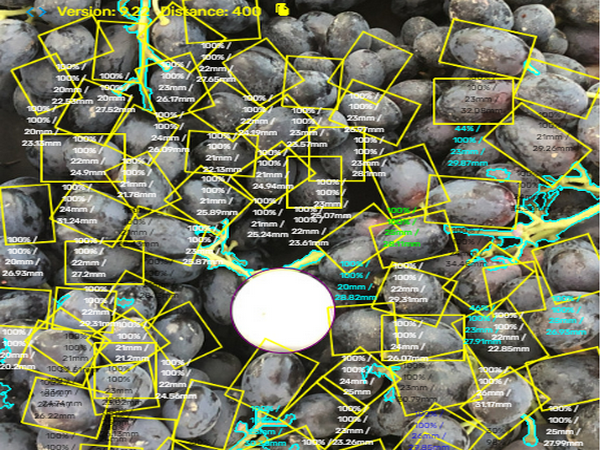Quality mismatches during sorting result in the rejection of hundreds of tons of fresh produce annually. It’s at this critical link in the supply chain that Clarifruit’s cloud-based QC software can reduce supplier waste up to 20%.

Clarifruit, which uses computer-vision technology to assess the quality of a wide variety of fresh produce, is already making a measurable impact on the bottom line of some leading growers and exporters of fruits and vegetables around the world.
“Produce waste is primarily caused by a lack of standardised language in terms of grading; subjectivity regarding color, shape, and defect categorisation; and lack of real-time data,” says Elad Mardix, CEO of Clarifuit.
In the fresh produce industry, there are no agreed standards for what constitutes a Grade A, B, or C fruit and vegetable. The lack of a standardized language means that each stakeholder has their own idea of what constitutes high-quality fruit. Each buyer builds their own quality specifications which must be interpreted by the seller. While one buyer considers a crop Grade A, another might not. The lack of standardization results in rejected shipments which hits seller revenues, while the buyer is left with empty shelves to fill.
Fresh fruits and vegetable quality control is about more than just the grade. Under the grade, there are dozens of parameters from size and color to numerous defects which vary between different fruits and vegetables. To one stakeholder, a tomato will be large, or have minor defects, while to another, it will be medium-sized, and the defects will be more severe. The same is true when it comes to an objective view of the produce’s color or shape, such as whether it’s red or orange. All these subjective judgements, usually carried out manually, result in costly mismatches.
The process of how the fruits and vegetables are picked, handled, stored, and transported can also create issues. Stakeholders need real-time visibility into where problems are occurring, for example recognizing that cold storage has damaged a selection of pallets, or that the quality reduces after using a certain transportation company or warehouse, in order to optimize matching of produce quality.
“It’s these challenges our technology successfully addresses, through standardizing languages, adding objectivity, and enabling real-time visibility of data,” explains Mardix. During QC, inspectors take a photo of the produce using Clarifruit’s mobile app, which provides an objective grading of external attributes that doesn’t change from inspector to inspector, thereby removing the issue of objectivity from the equation. By creating digital specifications inside Clarifruit, suppliers can translate buyer or seller language into other stakeholders, enabling them to compare grading systems.
“As a seller, you may run an inspection on a tomato yield, and it comes up Grade B. Using Clarifruit, you can automatically view your results side by side with the buyer specs and see that the yield is actually your buyer’s Grade A,” explains Mardix. “This enables suppliers to get a better price for the crop, while feeling confident that they won’t experience any rejects or renegotiations. Since this can be carried out at scale, suppliers can quickly see what a specific shipment would mean to each potential buyer, and then make an informed decision.”
Because inspections can be run as many times as needed, staff can be tasked with taking inspections at critical points along the journey, from pre-harvest, to storage, transportation and more, allowing suppliers to obtain more granular insight into produce and to understand when and how issues occur. This enables suppliers to make intelligent changes to the process and obtain better outcomes moving forward.
“Essentially, we’re enabling the democratisation of quality control, achieving more objective inspections for more accurate data about key produce parameters,” notes Mardix. Clarifruit’s technology reaps significant benefits throughout the whole value chain and can save millions of fruits and vegetables from being wasted annually.
Join Clarifruit for a webinar on Sep 13th (9am EST) and find out how to boost productivity and maximize profit with AI-powered QA. Register here.
For more information:
Elad Mardix
Clarifruit
Tel: +(972) 543-666838
Email: elad@clarifruit.com
www.clarifruit.com
